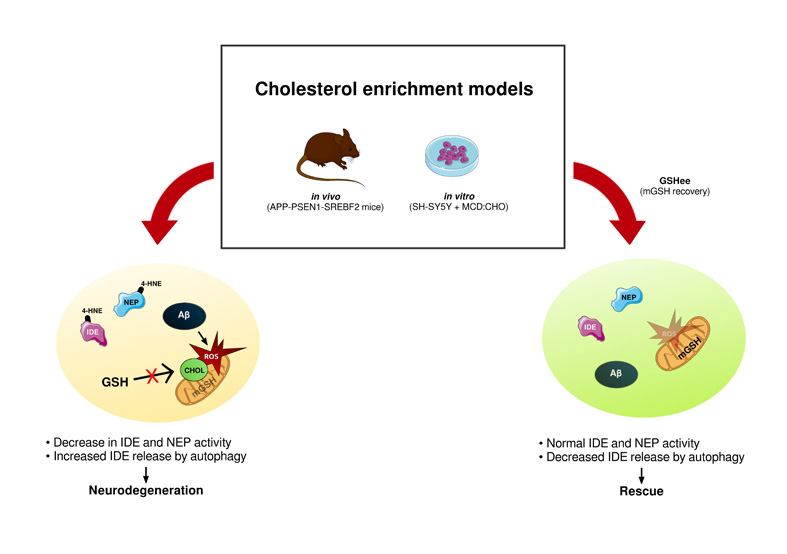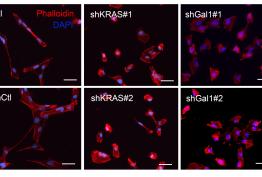Recent evidence indicates that decreased clearance of amyloid beta (Aβ) is the driving force leading to its toxic accumulation in late-onset (sporadic) Alzheimer’s disease. Levels and activity of Aβ-degrading proteases has been found decreased in human brains as a result of aging and inversely correlate with Aβ-related brain pathology. However, although oxidative modifications and defective function have been reported in these enzymes, the exact mechanisms that lead to their dysfunction have not completely defined yet.
The study, published in REDOX BIOLOGY and carried out by the research group "Signalling in Cell Damage and Cancer" with Cristina de Dios as the first author, reveals a novel mechanism connecting cholesterol-induced mitochondrial oxidative stress with reduced Aβ clearance and Alzheimer's disease progression. The data show how an excess of cholesterol, particularly in brain mitochondria, by depleting the mitochondrial glutathione (GSH) content, regulates the expression and activity of the main Aβ-degrading proteases (insulin-degrading enzyme (IDE) and neprilysin (NEP)). Moreover, strategies directed to preserve the mitochondrial antioxidant defense in cholesterol-enriched cells significantly reduce the oxidative modifications in IDE and NEP, protect their function and improve the extracellular Aβ-degrading activity, hence, supporting its use as a protective therapy against Aβ accumulation.







